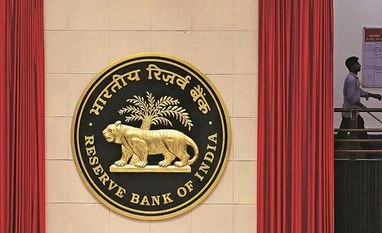The Reserve Bank of India (RBI) has expressed some concerns over zero-coupon bonds for the recapitalisation of public sector banks (PSBs) and discussion is on between the central bank and Finance Ministry to find a solution, according to sources.
The government resorted to recapitalisation bonds with a coupon rate for capital infusion into PSBs during 2017-18 and interest payment to banks for holding such bonds started from the next financial year.
To save interest burden and ease the fiscal pressure, the government has decided to issue zero-coupon bonds for meeting the capital needs of the banks.
The first test case of the new mechanism was a capital infusion of Rs 5,500 crore into Punjab & Sind Bank by issuing zero-coupon bonds of six different maturities last year. These special securities with tenure of 10-15 years are non-interest bearing and valued at par.
However, the RBI has raised some issues with regard to calculation of an effective capital infusion made in any bank through this instrument issued at par, the sources said.
Since such bonds usually are non-interest bearing but issued at a deep discount to the face value, it is difficult to ascertain net present value, they added.
More From This Section
The discount calculation may vary, which could lead to accounting adjustment, the sources said, adding both the Finance Ministry and RBI are in discussion to resolve the issue.
As these special bonds are non-interest bearing and issued at par to a bank, it would be an investment, which would not earn any return but rather depreciate with each passing year.
Parliament had in September 2020 approved Rs 20,000 crore to be made available for the recapitalisation of PSBs. Of this, Rs 5,500 crore was issued to Punjab & Sind Bank and the Finance Ministry will take a call on the remaining Rs 14,500 crore during this quarter.
This innovative mechanism will help ease the financial burden as the government has already spent Rs 22,086.54 crore as interest payment towards the recapitalisation bonds for PSBs in the last two financial years.
During 2018-19, the government paid Rs 5,800.55 crore as interest on such bonds issued to public sector banks for pumping in the capital so that they could meet the regulatory norms under the Basel-III guidelines.
In the subsequent year, according to the official document, the interest payment by the government surged three times to Rs 16,285.99 crore to PSBs as they have been holding these papers.
Under this mechanism, the government issues recapitalisation bonds to a public sector bank which needs capital. The said bank subscribes to the paper against which the government receives the money. Now, the money received goes as equity capital of the bank.
So the government doesn't have to pay anything from its pocket. However, the money invested by banks in recapitalisation bonds is classified as an investment which earns them an interest.
In all, the government has issued about Rs 2.5 lakh crore recapitalisation in the last three financial years. In the first year, the government issued Rs 80,000 crore recapitalisation bonds, followed by Rs 1.06 lakh crore in 2018-19. During the last financial year, the capital infusion through bonds was Rs 65,443 crore.
)